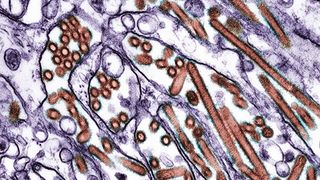Virus
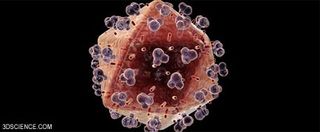
A virus is defined as any of a various number of submicroscopic parasites that can infect any animal, plant or bacteria and often lead to very serious or even deadly diseases. A virus consists of a core of RNA or DNA, generally surrounded by a protein, lipid or glycoprotein coat, or some combination of the three. No virus can replicate without the help of a host cell, and though they can be spread, viruses lack the ability of self-reproduction and are not always considered to be living organisms in the regular sense.Some of the most common or best known viruses include the human immunodeficiency virus (HIV), which is the virus that causes AIDS, the herpes simplex virus, which causes cold sores, smallpox, multiple sclerosis, and the human papilloma virus, now believed to be a leading cause of cervical cancer in adult women. The common human cold is also caused by a virus.Since a great deal of mystery still surrounds the origins of most modern viruses, ways to cure these viruses and the diseases they cause are still in the very early stages of development.
Explore Viruses, Infections & Disease
Latest about Viruses, Infections & Disease

Diagnostic dilemma: A surgeon accidentally transplanted a tumor into his own hand
By Mindy Weisberger published
In an unusual case, a surgeon developed a cancerous lump on his hand that stemmed from an injury he sustained while performing surgery.

A disease unknown to science could spark the next pandemic. Are we prepared?
By Allen Cheng published
The COVID pandemic is ongoing, but scientists are on alert for any pathogen that might lead to another global outbreak of disease.
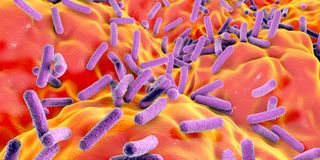
10 'superbug' stories from 2024, from bacterial 'Kryptonite' to deep-sea antibiotics
By Nicoletta Lanese published
Antibiotic and antifungal drug resistance pose a major public health threat. Live Science is covering the spread of this problem and the potential solutions that are emerging in turn.
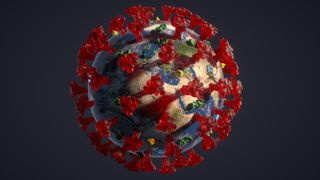
Expect more pandemics to sweep the globe in the coming decades
By Olga Anikeeva, Jessica Stanhope, Peng Bi, Philip Weinstein published
When human activities disrupt and unbalance ecosystems, such as by way of climate change and biodiversity loss, things go wrong.

Frosted branch angiitis: A rare eye condition that makes the retina look like a frosted tree
By Emily Cooke published
Frosted branch angiitis is a rare condition that makes the blood vessels that supply the retina look like the frosted branches of a tree.

Why are you more likely to catch a cold in winter?
By Emily Cooke published
Experts explain why you're more likely to catch a cold in the winter than in warmer seasons of the year.
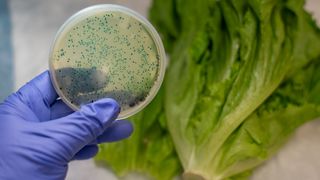
How does E. coli get into food?
By Marilyn Perkins published
Dangerous strains of E. coli bacteria can infiltrate the food supply through many different routes, experts explain.
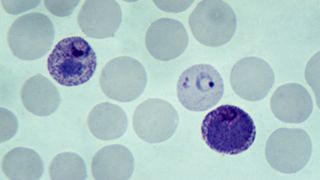
'Mystery disease' in Congo turned out to be malaria — and potentially, another disease
By Nicoletta Lanese published
An initially "unknown" illness affecting hundreds in the Democratic Republic of the Congo may be attributable to malaria, malnutrition and a viral infection. But investigations are ongoing.
Sign up for the Live Science daily newsletter now
Get the world’s most fascinating discoveries delivered straight to your inbox.
